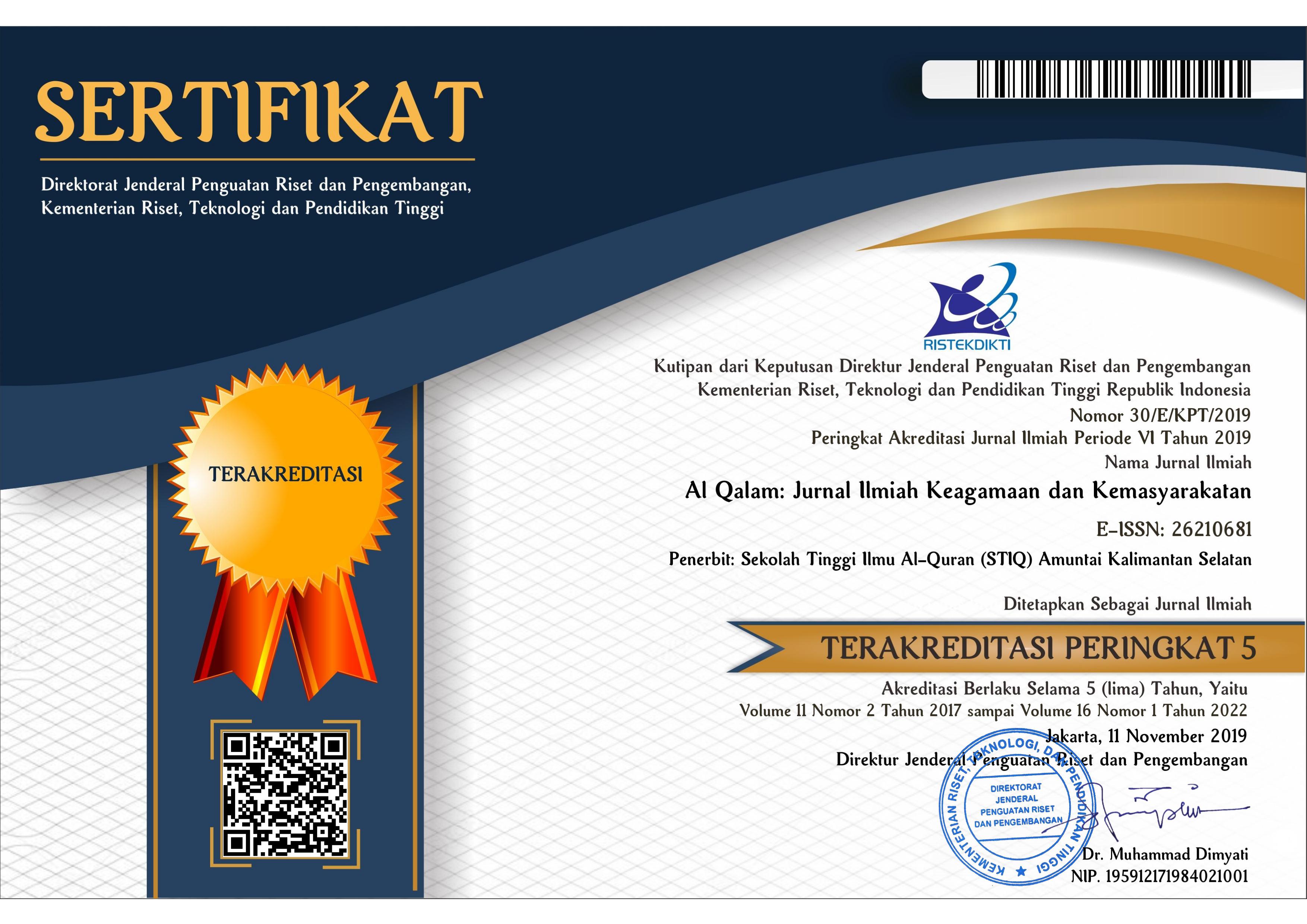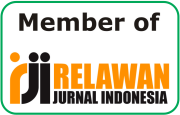Language Attitudes on English Informal Learner of Non-English Graduate through Lifespan
Abstract
Globalization has produced cutting-edge technology that allows people, especially young people, to access information anywhere. Blommaert calls globalization a historical keyword. Despite their similarities, the process of globalization is revolutionary in scope, complexity and dimensions. Over time, globalization can change locations, people, societies, cultures, economies, education, technology, and markets. Many generations consider English to be a universal language. This research is qualitative in nature. Creswell states that qualitative research investigates group intentions in social or human matters. Qualitative research evaluates participants' meaning in this way. Qualitative research uses specific methods to investigate social or human problems. Problem-oriented qualitative research collects data about primary object phenomena. Because it can store and replicate the most profound events and deal with complexity, moral relativism, and live animals, this research uses narrative inquiry. Narrative humanizes humans through the creation and restructuring of stories. Based on interviews and tables about language attitudes among casual English learners across the age range, respondents are very enthusiastic about the English skills learned on YouTube. Baker (quoted in Thuan) says that effective language learners develop a favorable attitude toward their language, which must be taken into account when defining language acquisition attitudes. Divita's lifelong theory helped her learn English. Since learning English, respondents have increased substantially, according to the time scale interview. When the respondent learned English on YouTube informally, he found many channels helpful. Language variation and evolution can be better understood with life span studies, and statistics show that respondents want to learn English. The problem of researching student attitudes by age is solved. The research found that respondents now enjoy their skills across a lifetime, spanning periods and life events. The author concludes that respondents prefer learning English informally. He enjoys learning English on YouTube, which he has used since childhood. This research should investigate respondents' local language skills before and after learning English and whether they prefer formal or informal English learning.
Keywords
Full Text:
PDFReferences
Ahmed, Shameem. “Attitudes towards English Language Learning among EFL Learners at UMSKAL.” Journal of Education and Practice 6, no. 18 (2015).
Al Noursi, Omar. “Attitude towards Learning English: The Case of the UAE Technological High School.” Educational Research 4, no. 1 (February 1, 2013).
Al-Sobhi, Bandar, Sabariah Md Rashid, and Ain Nadzimah Abdullah. “Arab ESL Secondary School Students’ Attitude Toward English Spelling and Writing.” SAGE Open 8, no. 1 (January 2018). https://doi.org/10.1177/2158244018763477.
Amin, Ahmad. “Attitude Towards Language in Sociolinguistics Settings: A Brief Overview.” REiLA : Journal of Research and Innovation in Language 2, no. 1 (April 26, 2020). https://doi.org/10.31849/reila.v2i1.3758.
Astrid, Annisa, Deta Desvitasari, and Aghor Aqdam. “The Language Attitude towards English Learning among EFL Learners: A Case at One Private Islamic Senior High School.” Ta’dib: Jurnal Pendidikan Islam 25, no. 1 (June 22, 2020). https://doi.org/10.19109/td.v25i1.5253.
Blommaert, Jan. The Sociolinguistics of Globalization. Tilburg University: Cambridge University Press, 2010.
Cholakova, Mariche. “The Influence of the English Language in a Multilingual and a Monolingual Environment – A Comparative Approach.” International Journal of English Language Teaching 3 (2015).
Codó, Eva. “Interviews and Questionnaires.” In The Blackwell Guide to Research Methods in Bilingualism and Multilingualism, edited by Li Wei and Melissa G. Moyer, 1st ed. Wiley, 2008. https://doi.org/10.1002/9781444301120.ch9.
Creswell, J. W. Qualitative Inquiry & Research Design: Choosing among Five Approaches. 2nd ed. Thousand Oaks, CA: Sage Publications, 2012.
———. Research Design: Qualitative, Quantitative, and Mixed Methods Approached. Thousand Oaks: SAGE Publications, 2014.
Crystal, D. English as a Global Language. 2nd ed. New York: Cambridge University Press, 2003.
Csizér, Kata, and Zoltán Dörnyei. “The Internal Structure of Language Learning Motivation and Its Relationship with Language Choice and Learning Effort.” The Modern Language Journal 89, no. 1 (2005). https://doi.org/10.1111/j.0026-7902.2005.00263.x.
Dabamona, Miftahulfadlik, and Andarifa Yunus. “The Use of Youtube for Learning English: Exploring Technology-Based Approach.” Interference: Journal of Language, Literature, and Linguistics 3, no. 1 (March 19, 2022). https://doi.org/10.26858/interference.v3i1.31475.
DeWitt, Dorothy, Norlidah Alias, Saedah Siraj, Mohd Yusaini Yaakub, Juhara Ayob, and Rosman Ishak. “The Potential of Youtube for Teaching and Learning in the Performing Arts.” Procedia - Social and Behavioral Sciences 103 (November 2013). https://doi.org/10.1016/j.sbspro.2013.10.439.
Divita, David. “Multilingualism from a Lifespan Perspective: Case Studies from a Language Workshop for Spanish Seniors in Saint-Denis, France.” International Journal of Multilingualism 11, no. 1 (January 2, 2014). https://doi.org/10.1080/14790718.2013.789030.
Drotner, K. Informal Learning and Digital Media: Perceptions, Practices and Perspectives. In K. Drotner, H.S. Jensen, C. Schrøder (Eds.), 10-28. Informal learning and Digital media. Newcastle, England: Cambridge Scholars, 2008.
Dyosi, Neliswa Florence. “Using YouTube as an Informal Learning Tool for Children,” 2018.
Eshghinejad, Shahrzad, and Kris Gritter. “EFL Students’ Attitudes toward Learning English Language: The Case Study of Kashan University Students.” Cogent Education 3, no. 1 (2016).
Gardner, R. C. Social Psychology and Second Language Learning: The Role of Attitudes and Motivation. London: Edward Arnold, 1985.
Hasan, Md Mahadhi, F. Ibrahim, S. M. Mustapha, M. Islam, M. Abdullah, and A. Younus. “The Use of YouTube Videos in Learning English Language Skills at Tertiary Level in Bangladesh.” Infrastructure University Kuala Lumpur Research Journal 6, no. 1 (January 1, 2018).
Hasibuan, Leli Fitri, Busmin Gurning, and Rahmad Husein. “Language Attitude of Mandailingnese Teenagers in Desa Sidojadi Kecamatan Bukit Malintang Kabupaten Mandailing Natal.” Linguistik Terapan 15, no. 2 (2018). https://doi.org/10.24114/lt.v15i2.12352.
Joshi, Ankur, Saket Kale, Satish Chandel, and D. Pal. “Likert Scale: Explored and Explained.” British Journal of Applied Science & Technology 7, no. 4 (January 10, 2015). https://doi.org/10.9734/BJAST/2015/14975.
Kridalaksana, H. Kamus Linguistik. Jakarta: Gramedia Pustaka Utama, 2001.
Lee, Ju Seong, and Mark Dressman. “When IDLE Hands Make an English Workshop: Informal Digital Learning of English and Language Proficiency.” TESOL Quarterly 52, no. 2 (June 2018). https://doi.org/10.1002/tesq.422.
Mertova, Patricie, and Leonard Webster. Using Narrative Inquiry as a Research Method: An Introduction to Critical Event Narrative Analysis in Research, Teaching and Professional Practice. 2nd ed. London: Routledge, 2019. https://doi.org/10.4324/9780429424533.
Montano, Daniel, Danuta Kasprzyk, Karen Glanz, Barbara Rimer, and Katam Viswanath. “Theory of Reasoned Action, Theory of Planned Behavior, and the Integrated Behavior Model.” In Health Behavior and Health Education: Theory, Research, and Practice. London, England: Cambridge Scholars Publishing, 2008.
Münster, Katja, and Pia Knoeferle. “Situated Language Processing Across the Lifespan: A Review.” International Journal of English Linguistics 7, no. 1 (January 14, 2017). https://doi.org/10.5539/ijel.v7n1p1.
Pham, Thuan. “Attitude and Motivation in Language Learning: A Review.” Journal of English Language Teaching and Applied Linguistics 3, no. 5 (May 29, 2021). https://doi.org/10.32996/jeltal.2021.3.5.7.
Roopa, S, and Ms Rani. “Questionnaire Designing for a Survey.” Edited by Gurkeerat Singh. The Journal of Indian Orthodontic Society 46 (October 2012). https://doi.org/10.5005/jp-journals-10021-1104.
Sankoff, Gillian. “Language Change Across the Lifespan.” Annual Review of Linguistics 4, no. Volume 4, 2018 (January 14, 2018). https://doi.org/10.1146/annurev-linguistics-011817-045438.
Sockett, Geoffrey. The Online Informal Learning of English. London: Palgrave Macmillan UK, 2014. https://doi.org/10.1057/9781137414885.
Temban, Magdeline M., Tan Kim Hua, and Nur Ehsan Mohd Said. “Exploring Informal Learning Opportunities via YouTube Kids among Children During COVID-19.” Academic Journal of Interdisciplinary Studies 10, no. 3 (May 10, 2021). https://doi.org/10.36941/ajis-2021-0083.
Todorova, Nataliya, Anna Todorova, and Otto von Guericke University, Magdeburg. “Globalization and the Role of the English Language.” Mìžnarodnì Zv’âzki Ukraïni: Naukovì Pošuki ì Znahìdki, no. 27 (September 27, 2018). https://doi.org/10.15407/mzu2018.27.331.
Toffoli, Denyze, and Geoff Sockett. “University Teachers’ Perceptions of Online Informal Learning of English (OILE).” Computer Assisted Language Learning 28, no. 1 (January 2, 2015). https://doi.org/10.1080/09588221.2013.776970.
Vijaya Bhaskar, C., and S. Soundiraraj. “A Study on Change in the Attitude of Students towards English Language Learning.” English Language Teaching 6, no. 5 (April 11, 2013). https://doi.org/10.5539/elt.v6n5p111.
Wagner, Elvis. “Are They Watching? Test-Taker Viewing Behavior during an L2 Video Listening Test.” Language Learning & Technology 11, no. 1 (February 2007).
Wagner SE, Buchstaller I. Panel Studies of Variation and Change. New York: Routledge. In press, 2017.
Wang, Hung-chun, and Cheryl Wei-yu Chen. “Learning English from YouTubers: English L2 Learners’ Self-Regulated Language Learning on YouTube.” Innovation in Language Learning and Teaching 14, no. 4 (August 7, 2020). https://doi.org/10.1080/17501229.2019.1607356.
DOI: http://dx.doi.org/10.35931/aq.v18i3.3486
Refbacks
- There are currently no refbacks.
Copyright (c) 2024 Amaliah Amaliah

This work is licensed under a Creative Commons Attribution 4.0 International License.
Al Qalam: Jurnal Ilmiah Keagamaan dan Kemasyarakatan
index by:
Publish by:
Sekolah Tinggi Ilmu Al-Qur'an Amuntai
Contact us:
Address: Jl. Rakha Pakapuran, Amuntai Utara
Kabupaten : Hulu Sungai Utara
Kode Pos : 71471
Provinsi : Kalimantan Selatan
Telephone : 085251613000
Email: hafizhihusinsungkar@gmail.com

This work is licensed under a Creative Commons Attribution 4.0 International License


